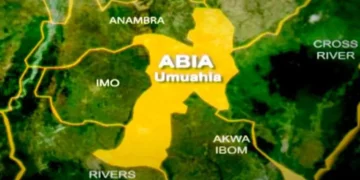Following the approval of the National Assembly (NASS) for the Securitisation of the N22.7 trillion Ways and Means Advances extended to the federal government by the Central Bank of Nigeria (CBN), analysts have said, the move would see the country’s domestic borrowing increase and crowd out local businesses in the market.
Last December, President Muhammadu Buhari wrote the NASS to approve the securitisation of FG’s borrowing from the apex bank through Ways and Means which has grown exponentially to over N22 trillion. By securitizing the liability, the CBN would officially become a constitutionally recognised long-term creditor to the FG.
Thus, the liability of N22.7 trillion would be formally added to existing debt stock of N46.1 trillion under the repayment conditions stipulated.
Commenting on the move, analysts at Afrinvest West Africa noted that, they expect “extended apathy of foreign investors and bilateral lenders towards Nigeria in the near-term, given the coincidence in the timing of the securitization approval and the reversal on the plan to end PMS subsidy payment drain which had for many years been a major recommendation of Bretton Woods institutions.
“Hence, should the FG’s projected revenue underperform going forward, as the trend has been historically, deficit plugging would mostly be done through domestic debt issuance, and by extension, crowd out local businesses which are major drivers of GDP growth.”
Analysts at Cordros Research stated that, given that the arrangement involves the FG issuing the securities to the CBN, “it means the W&M outstanding will remain in the CBN’s balance sheet. In our view, the securities remaining in the CBN’s books, introduces a moral hazard issue.
“Nonetheless, this development will ensure that the public debt profile reflects its true picture, bringing debt sustainability to the forefront of policymaking and, possibly, ensuring the next administration consciously embark on fiscal consolidation.”
On their part, analysts at Cowry Assets Management Limited, said: “in our opinion, the financing is costly for the FGN at interest rates of Monetary Policy Rate (MPR) at +300bps as this form of lending has several macroeconomic implications. Such could be the impact on prices which causes an acceleration of money supply growth and also aggravates inflation.
“Also, timely securitisation of this large exposure will help the CBN improve its asset quality to the benefit of its shareholders and then provides room for the federal government to scale down the cost of governance, expand the tax base, and instill efficiency in revenue-generating agencies of the government to reduced recourse to CBN Ways & Means support.”
The securitisation move became pertinent following the inability of the outgoing administration to offset what should have been a stop-gap funding from the CBN. Up to 96.2 per cent or N21.8 trillion of the gross Ways & Means liability was obtained within the eight years of the outgoing administration.
LEADERSHIP had reported that this was a violation of the allowable five per cent of previous year’s revenue limit imposed by section 38 of CBN’s Act, 2007.
With this securitisation approval coming less than 30 days to the swearing-in of a new administration amid Nigeria’s fiscal despair, analysts at Afrinvest say the “securitisation approval has just passed on the liability, especially principal payment at maturity, to the young and future generation.
“Second, though the reduced interest payment cost on the Ways & Means liability and the three years moratorium window provided in the restructuring terms should reduce cost of debt servicing in the near-term, budget and fiscal deficit sizes may not in any way reduce due to FG’s U-turn on PMS subsidy removal by mid-year.”










